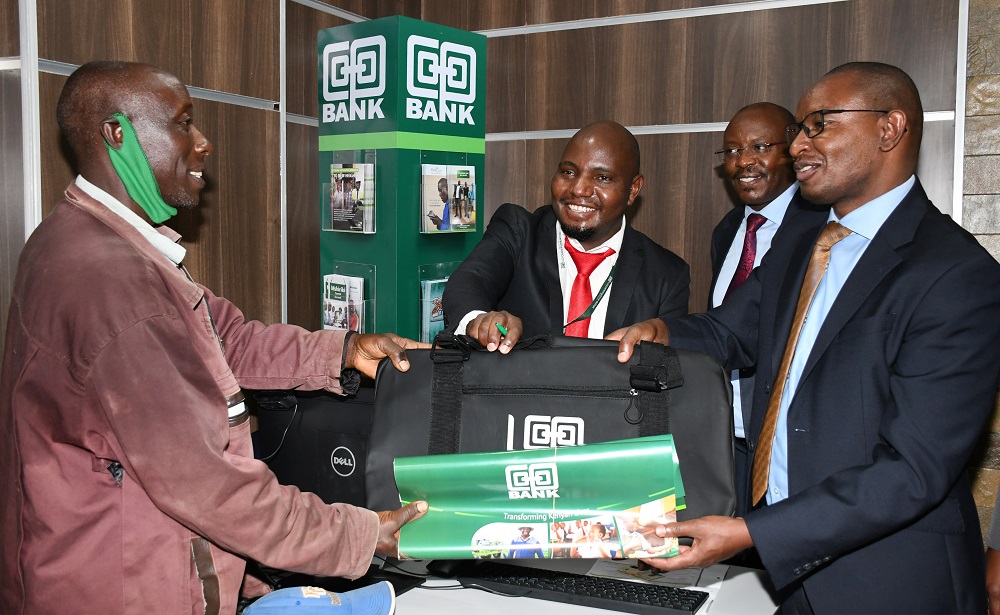Co-operative Bank of Kenya has gone against the industry trend of rolling back brick-and-mortar footprint and is expanding its physical outlets to add onto the current 173 branches in Kenya.
Seven new Co-op Bank branches are underway in carefully-selected locations namely Kamakis on Nairobi’s Eastern Bypass, Kabarnet, Iten, Moyale, Mwiki/Kasarani, Bunge at the new Parliament Tower in Nairobi and Kamulu in Nairobi’s Eastlands which opened doors in December last year.
The expansion of brick-and-mortar presence will complement the bank’s robust digital banking channels that continue to grow in popularity to now handle more than 90% of customer transactions. The Mco-opCash mobile wallet has registered 5.3 million users and disbursed Ksh51.3 billion in loans as at the close of the third quarter of last year, averaging Ksh5.7 billion per month.
The decision on the need and location of new branches is determined through rigorous market research. The new branches do not typically increase staff headcount as they are usually staffed from existing teams, following the branch transformation and digitization program implemented under the Soaring Eagle project that has enabled agile resourcing of the business.
Read >> How Kenyans Are Minting Millions From Online Jobs
Banks have been making cost savings by rolling back their branch network as some customers prefer to use online banking services. So what informs the decision to reverse this trend and open new branches?
First, selection of branch sites is, as it were, supported by rigorous market research to ensure viability. In fact, Co-op Bank says it’s never closed a branch in its 50-year history.
“Co-op Bank’s new branches give us an insight into emerging centres of economic activity that are currently underserved by banks,” the management says. “Second, there is no one single channel that will displace all others, rather, it’s the investment in an optimal and balanced multichannel strategy that will offer a fulfilling experience to the customer.”

The emerging theory that bank branches and ATMs will cease to exist is largely driven by desires to cut brick and mortar costs, and not by credible customer feedback on the service outlets through which customers prefer to be served. Whilst some customers will do some transactions online or on cellphones, a significant section of customers still prefer to engage a bank through a physical branch, especially for certain services, for a long time to come.
a branch is not just a transactional point, it’s a statement of intent to build sincere lifelong relationships.
Third, Co-op Bank branches are Service Hubs, as they serve not just own customers, but also the bank’s subsidiary network including Saccos especially those running FOSAs now numbering 479 countrywide, and 23,000 bank agents who depend on its cash management services, training and supervision to run. How can a bank have a viable agency network or FOSAs when the nearest bank branch is, say, over 50km away?
Four, for Co-op Bank a branch is not just a transactional point, it’s a statement of intent to build sincere lifelong relationships.
Last but not least, the advent of devolution and establishment of county governments has fostered a totally new economic dynamic with counties emerging as new centres of economic operation. Co-op Bank has a County Banking Strategy aimed at building competencies to serve the unique needs of the various counties and communities.
See Also >> Safaricom’s Lipa Na M-Pesa Faces Onslaught From Equity Bank
This includes having some form of physical presence in counties, as it would be highly unlikely that a county would partner with a bank that has no physical presence in its jurisdiction.
The ongoing migration of routine bank transactions such as cash withdrawals, deposits and payments to alternative channels offers banks the space for deeper engagements with customers and the wider community. This includes more focus on customer advisory, consultancy and training, to build lifelong relationships, brand immersion and sustainable value-addition to the communities.
Similar to other lifelong relationships, banking needs to be nurtured for the long-term rather than regarded as transactional interactions.
Next Read >> Six Companies KRA Is Hunting Down Of Tax Billions












Leave a comment